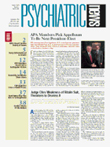The very supportive article about the Americans With Disabilities Act (ADA) and work accommodations in the January 19 issue misses a very important point that members need to know.
An employee must be able to do the essential (not every) function of his or her job in order for the change in job duties to be considered an accommodation under the ADA. Flexible hours, working from home, and so on may or may not enable the employee to do those essential functions. For example, certain jobs require more “face time” and being at the work site most of the time. Others are tuned to certain hours of the day. A small workforce doesn’t have the numbers to accommodate the loss of a worker at those hours, and no workplace can accommodate unpredictable hours. If the employer deletes specific essential functions even briefly, the employer is de facto giving the employee a new job with all the consequences to job tenure, salary, and other factors.
Job design and job definition within a work setting are not only issues for people with disabilities. They are problems that affect everyone who works in an organizational setting. They require initiative and flexibility to resolve, and job satisfaction is very dependent on how well the worker does that. While physicians have always been willing to work very hard, for example, they have had unusual flexibility in defining and redefining their jobs. Many have no experience with the process of defining their job or their role in the organizational settings that have developed over the past 10 years. They may not even think about or know how to redefine themselves in these new structures.
Maintaining morale by giving each person a job he or she can do is a challenge for most managers. Poor job design and inattention to job definition often precipitate poor morale in some and disability in more vulnerable workers.
If an employee can’t do the essential functions of his or her job (essential varies with the size of the workplace and the function of the employee), the person may need to find another job—with or without accommodation—with the current employer or with another one.
That may seem harsh but, in fact, employees never feel good or do well at a job they can’t really do. They need help from their doctor and their employer defining a job they can do. Sometimes that involves losses but even nondisabled employees—even you and I—have to face that.
